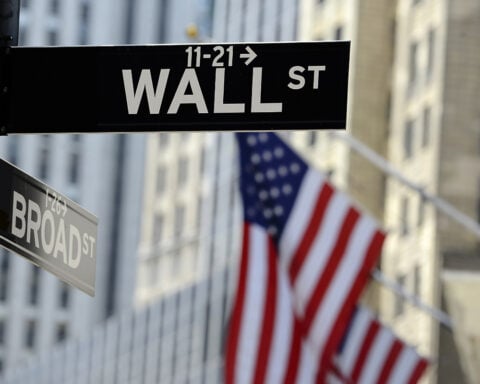Wall Street experienced a subdued trading session Wednesday morning as U.S. stocks drifted lower, weighed down by rising oil prices and growing uncertainty about geopolitical tensions in the Middle East. Investors remain on edge as the world watches how Israel will respond to a missile attack from Iran, heightening concerns over potential disruptions to global oil supplies.
The S&P 500 dropped 0.3%, following Tuesday’s decline, driven by fears that the conflict in the Middle East could escalate. Similarly, the Dow Jones Industrial Average slipped by 14 points, or less than 0.1%, and the Nasdaq composite was down 0.4%, continuing the downward trend across major indexes.
Oil Prices Surge on Middle East Concerns
Crude oil prices surged by roughly 3%, with Brent crude surpassing $75 per barrel, reflecting renewed concerns about oil supply stability. The increase in oil prices is tied to fears that the conflict could spread, impacting major oil producers in the region. While Israel is not a significant oil exporter, Iran is, and any escalation of violence could affect other countries vital to the global oil supply chain.
The oil price rally contrasts with the downward trend seen earlier this year, when prices were softening due to concerns about weakening demand. Brent crude had dropped below $70 last month, but the latest spike has revived worries about inflation and economic instability.
The rise in oil prices has provided a boost to U.S. oil and gas companies. Exxon Mobil saw a 2% rise in its stock on Wednesday, adding to a 5.7% gain for the week, as investors flocked to energy stocks amid the price surge.
Market Movers: Humana, Nike, and Tesla Face Challenges
Not all companies benefited from the day’s trading activity. Humana experienced a sharp 20.5% decline in its stock value after warning that a drop in its Medicare Advantage ratings could negatively impact its revenue in 2026. The health insurer pointed to potential errors in the Centers for Medicare and Medicaid Services’ calculations, which it is currently challenging.
Nike, despite reporting stronger-than-expected profits for the latest quarter, saw its stock fall 7.8%. The company’s revenue came in below analysts’ forecasts, raising concerns about the challenges facing incoming CEO Elliott Hill in revamping the brand’s image. Nike also withdrew its financial forecast for the full year and postponed its investor day conference, adding further uncertainty to its outlook.
Conagra Brands, the parent company of Duncan Hines and Reddi-wip, also faced a significant drop, with its stock falling 8.7%. The company reported weaker profits than expected, citing temporary manufacturing disruptions at its Hebrew National business during peak grilling season as a key factor impacting its performance.
Tesla shares were among the heaviest weights on the S&P 500, falling 5.8%. While the electric vehicle maker reported an increase in deliveries for the latest quarter, the first such increase this year, the numbers fell short of investor expectations, contributing to the stock’s decline.
Bond Yields Rise Amid Hiring Data
In the bond market, Treasury yields rose following a report indicating stronger-than-expected hiring by U.S. private-sector employers. According to the report from ADP Research, private employers added 143,000 jobs last month, a figure that exceeded forecasts and suggested that the U.S. job market remains resilient despite concerns over the Federal Reserve’s tight monetary policy.
The yield on the 10-year Treasury climbed to 3.81%, up from 3.73% late Tuesday, while the two-year yield, which more closely tracks expectations for the Fed’s interest rate moves, increased to 3.65% from 3.61%. These moves in bond yields reflect investor uncertainty over the Federal Reserve’s next steps in managing the economy. Traders have shifted their expectations toward a traditional quarter-point cut in interest rates, after previously betting on a larger cut.
Global Markets React
International markets also saw mixed results. In Hong Kong, the Hang Seng index surged by 6.2% as investors reacted positively to Beijing’s recent economic stimulus measures. Chinese markets, including those in Shanghai, were closed for a holiday, leading to crowded trading in Hong Kong. Meanwhile, Japan’s Nikkei 225 experienced a 2.2% decline, continuing its recent trend of sharp swings, and European indexes delivered mixed performances, reflecting the ongoing global economic uncertainty.
As markets continue to navigate geopolitical tensions, rising oil prices, and economic indicators, investors remain focused on upcoming data, including Friday’s U.S. government report on the broader labor market, which will offer further insight into the strength of the economy amid the Federal Reserve’s ongoing efforts to curb inflation.







